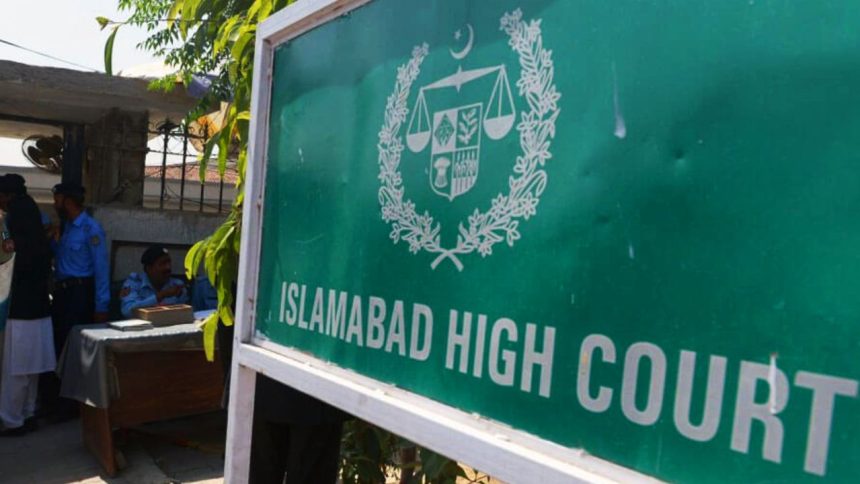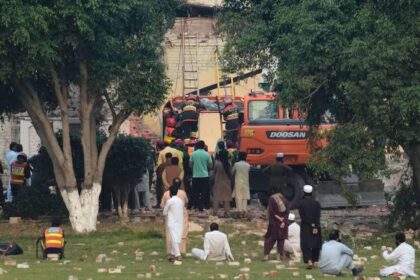Expressing strong disapproval of the government’s handling of the ongoing internet disruptions across Pakistan, Islamabad High Court (IHC) highlighted the lack of clear communication and transparency on party of the authorities.
Chief Justice Aamer Farooq presided over the hearing on Monday, and summoned the Ministry of Information Technology’s technical member to appear in person at the next court session scheduled for September 3, following what the court deemed an “unsatisfactory” response from government officials.
The hearing was initiated in response to widespread complaints regarding slow internet speeds and concerns over the possible installation of a national firewall. Justice Farooq said that contradictory statements made by various government ministers had left the public in a state of confusion.
During the hearing, a lawyer representing the Pakistan Telecommunication Authority (PTA) informed the court that the slowdown was due to damage to multiple submarine cables. Initially, two cables were reported damaged, and now a third had also been affected, leading to further internet degradation, he said. However, the court was unsatisfied with this explanation, especially because no clear responsibility for the damage was established. The court wondered whether the PTA or another entity was accountable for repairing the cables and restoring full internet functionality.
Inconsistent statements
It may be mentioned here that the government’s narrative on the installation of a firewall have been inconsistent, which further complexed the situation.
Minister of State for Information Technology and Telecommunication Shaza Fatima recently denied any internet throttling and blamed the excessive use of Virtual Private Networks (VPNs) for the perceived slowdowns. On the other hand, PTA Chairman Maj Gen (r) Hafeezur Rehman said that no firewall was being installed, and the government was merely upgrading its web management system. The explanations did little to quell public concerns or the frustration expressed by the court.
Justice Farooq expressed particular concern over the economic consequences of these disruptions, noting that many young people in Pakistan depended on freelancing as their primary source of income.
The court was informed that users had reported difficulties accessing essential services such as WhatsApp and Facebook, with mobile data speeds remaining slow. Petitioners’ lawyer Imaan Mazari said the disruptions had prevented freelancers from completing projects on time, resulting in negative feedback from clients and tarnishing the reputation of Pakistani freelancers on global platforms.
The IHC chief justice criticized the government for pushing digital initiatives without ensuring the necessary infrastructure to support them. The court then directed the government to submit a detailed report by September 3, clarifying whether the disruptions were a matter of security or national interest, of if other factors were at play.
Infringements
Meanwhile, Amnesty International also weighed in on the matter and called for greater transparency from the Pakistani authorities regarding the installation of surveillance technologies, including a national firewall.
Jurre Van Bergen, a technologist at Amnesty International, expressed concern over the opacity of the government’s actions. He said that the use of such technologies could infringe on human rights. He said it was alarming that monitoring and surveillance technologies were being used to block content, as well as slow down and control internet speeds. In a statement, he said that such “pervasive tools” undermined the right to access information and online freedom of expression.
The global rights group also urged the government to be transparent about the cause of the disruptions. It must also be ensured that any surveillance systems deployed were necessary, proportionate, and in line with international human rights laws, it said.
It is pertinent to mention that internet disruptions have led to a 40 percent drop in speeds across the country over the last two weeks. While the court awaits the government’s report, the public remains anxious for a resolution that will restore normalcy to their digital lives.












